By Sheila Brosnan, SC
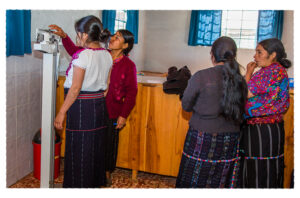
The following is from the Summer 2021 issue of Vision.
When the Sisters of Charity arrived in Guatemala in 1971, the anticipated life span of women was 41 years, and of men, 45 years. The programs that were put in place 50 years ago have radically changed the perspective of health among the indigenous people in the Altiplano region of Guatemala. Clinics established in each of four municipalities proved to be a significant step in providing medical and educational services in the remote areas. Currently, the life span is predicted to be in the low seventies for both men and women.
The establishment of prenatal care, “under-five clinics,” vaccination programs, and monitoring for signs of malnutrition, parasites, or tuberculosis, enabled the Sisters of Charity nurses, Sisters Immaculata Burke, Barbara Ford and Sheila Brosnan, to welcome graduate medical students from the University of San Carlos who were willing to practice rural medicine for a few months.
A stellar program for health promoters proved to be key in establishing trust among the people in remote villages. Promoters were trained local men and women who spoke limited Spanish but could identify the signs and symptoms of the most common medical problems and offer practical advice.
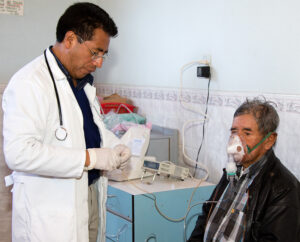
Over the years, the most significant change agent in the highlands has been Doctor José Miguel Vasquez Yaxon. His medical expertise and administrative skill, along with his natural command of the Indian language and his gentle manner, enabled him to successfully work in rural health care. After many years, Dr. José continues to practice with commitment and innovation; the clinic in Nahualá is equipped with a modern lab and technician.
Currently, disease entities that are more prevalent in United States culture seem to be emerging in the Guatemalan culture. Diabetes, stress-related issues and manifestations of heart disease are occurring with greater frequency, possibly due to changes in diet and activity.
Guatemala has procured minimal supplies of Covid vaccines and most of the rural areas are considered “red zones.” In one of the most remote villages, Santa Catarina Ixtahaucan, the people have had little or no incidence of Covid. They accomplished this by prohibiting entrance to or egress from the village.
During Covid, health promoters have been unable to function, and people cannot gather in church or in the town plaza. Public Health officials provide strict regulations about the care of the deceased and involved family members. Because Public Health monitors Covid reporting, it is difficult to determine the death rate in the Altiplano village.
After 50 years, we are proud and happy to report that despite many challenges, the medical clinics in Nahualá, Santa Lucia, and the New and Old Santa Catarina Ixtahaucan are still providing consistent quality care. Ad multos annos!
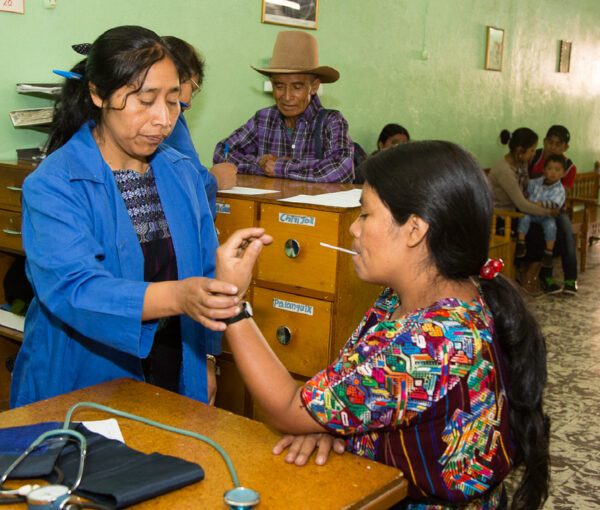
Staff at Clinica Santa Elizabeth Ann Seton in Nahualá works together to care for patients. 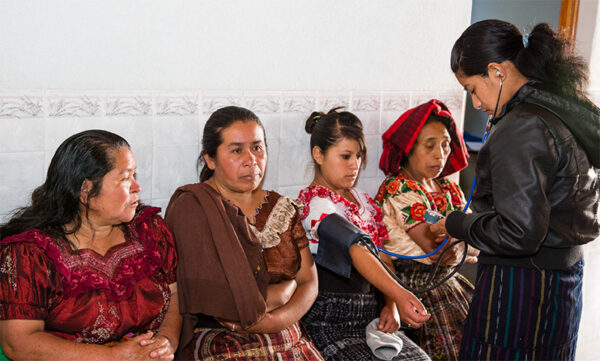
Medical assistant checks patient’s blood pressure. at Centro de Promoción de Salud Rural, El Novillero, the first clinic operated by the sisters
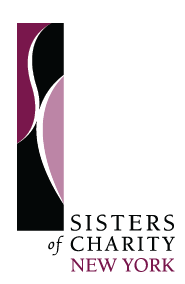
Thank you for sharing the news.
The faith of the Guatemalan people is a gift to us. Their reverence for creation permeates their way of life—to share their blessing.